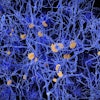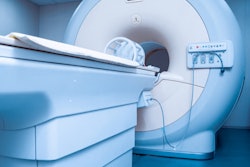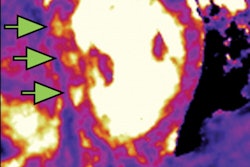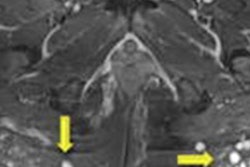Dear MRI Insider,
For patients with epilepsy, surgery offers hope for a reduction in seizure frequency -- or even complete seizure resolution. Traditionally, open corpus callosotomy has been performed to cut corpus callosum fibers in the brain and block nerves from sending seizure signals. But this procedure is invasive, and it exposes patients to complications.
In this edition's Insider Exclusive, we're highlighting a study conducted by researchers from Emory University in Atlanta who found using MRI to guide a procedure called stereotactic laser corpus callosotomy (SLCC) produces comparable outcomes to open surgery -- and also improves robotically guided SLCC.
When you've read that story, check out our coverage of what else is going on in the world of MRI. U.K. researchers have found that a free-breathing, 3D whole-heart T2 MRI mapping sequence can quantify myocardial T2 times in patients with suspected myocarditis, while a team of Kuwaiti researchers found functional MRI to be effective for evaluating persistent smell and taste dysfunction in COVID-19 patients. Another study, conducted by Memorial Sloan Kettering investigators, found that MRI-guided breast biopsy shows promise for evaluating breast cancer patients' response to chemotherapy.
In an effort to literally boost their buttocks, patients may undergo procedures that inject silicone filler into the area. Unfortunately, some experience serious, long-term complications caused by the migration of biopolymers found in the silicone. Researchers from Cali, Colombia, have found that MRI is an effective way for surgeons to assess the severity of complications caused by buttock augmentation and thus plan treatment more effectively.
MRI is also proving useful for better determining the causes of brain damage in patients infected with SARS-CoV-2, the virus that causes COVID-19. And a team of researchers from the University of Southern California has found that MRI data showed a link between people with HIV and low CD4+ T-cell counts -- results that could help clinicians better track the connection between immune function and brain alterations in this population.
MRI is truly a versatile imaging modality. We invite you to visit our MRI Community often to get the latest news on how it is being used across a range of applications.



.fFmgij6Hin.png?auto=compress%2Cformat&fit=crop&h=100&q=70&w=100)





.fFmgij6Hin.png?auto=compress%2Cformat&fit=crop&h=167&q=70&w=250)











